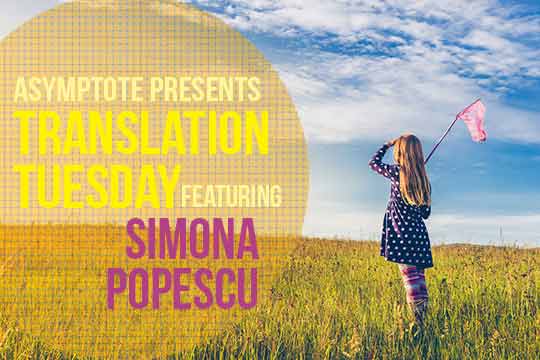In this week’s dispatches, our editors report on the continual remembrance of iconic poets, interdisciplinary festivals, and writing that draws attention to the climate crisis. Read on to find out more!
Sofija Popovska, Editor-at-Large, reporting from North Macedonia
Sixty years after the tragic passing of Danica Ručigaj, iconic poet and pioneer of écriture féminine in North Macedonia, an anniversary edition containing the entirety of her oeuvre was published this month. The collection, entitled Srebreni nokjni igri i zarobenici na vetrot (Silver Nighttime Games and Prisoners of the Wind) was prepared by two prominent publicists and journalists working at Radio Skopje, Sveto Stamenov and Iskra Cholovikj, who have dedicated over two decades to researching Ručigaj’s reception and sustaining the vivacity of her legacy.
Ručigaj (1934–1963), sometimes referred to as the Sylvia Plath of North Macedonia for the unabashed vulnerability of her writing, studied ancient Greek, Latin, and Southern Slavic literature, and also worked for the Cultural Ministry of North Macedonia. She passed away at the age of twenty-nine in the 1963 Skopje earthquake—a devastating event that resulted in numerous casualties and left the entire city in ruins. Two poems famously discovered in the ruins of Ručigaj’s home—“Circles” and “Untitled”—will be featured in the anthology, along with essays about her work by prominent scholars and a complete bibliography of publications containing Ručigaj’s writing.
Ručigaj’s poetry, informed by her academic background and nonconformist, taboo-defying artistic attitude, occupies a prominent position in Macedonian literary history. Her refusal to comply with patriarchal norms continues to retain its relevance, as anti-equality sentiments are rising amidst the public. In one of her best-known poems, “No, Do Not Speak to Me” (“Ne, Ne Zboruvaj Mi”), a feminine voice laments the death of a bird who lived “within eyes that have now dried up”, simultaneously noting that its death might be a relief to some: “Come hither, do not fear / Those eyes no longer shine / And so, come hither.” As the poem progresses, we begin to realize that the owner of the eyes is the feminine speaker herself; without the bird—their inner songsmith—they no longer pose a threat to the Other that the poem is directed to. This poem remains an accurate image of gender relations in Macedonian society, where equality is still considered a threat to the “sanctity of the family”. READ MORE…





